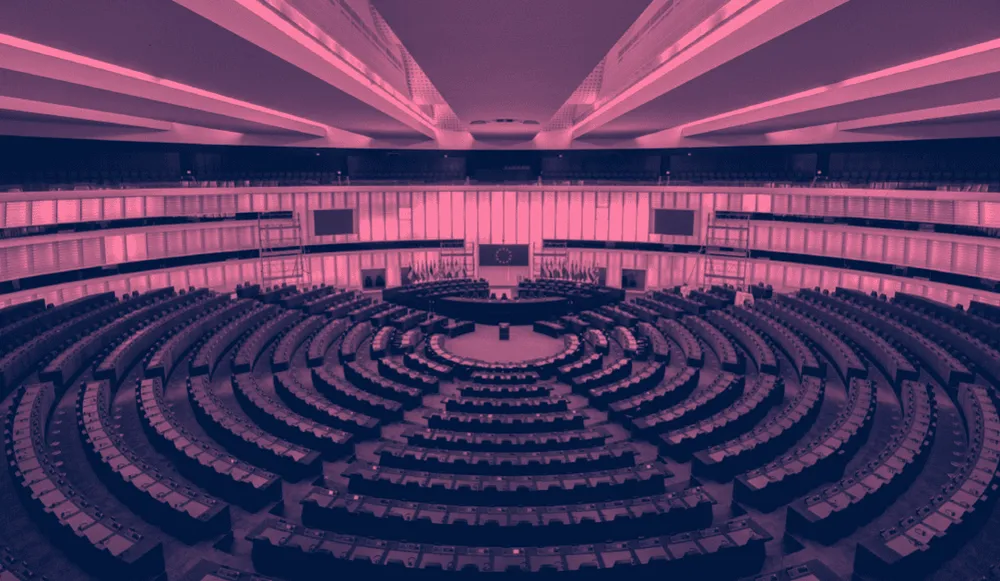China proposes UN treaty criminalizes ‘dissemination of false information’
Updated at 1:10 pm EST with comment from a United Kingdom Foreign Office spokesperson.
China has proposed that a new international convention on cybercrime should criminalize the “dissemination of false information” during negotiations in Vienna about the provisions of the United Nations treaty.
The proposal is likely to be contested by Western states who will see it as a threat to human rights standards and an attempt by the Chinese Communist Party to legitimize its controls, and those of like-minded governments, over what people can see and share online.
In May 2021, the U.N. adopted a resolution calling for a draft convention “on countering the use of information and communications technologies for criminal purposes” to be voted on at the General Assembly by September 2024.
Although an existing international convention on cybercrime was signed in Budapest in 2001, it was not a U.N. treaty and has not been adopted by countries such as China, Russia, India or Brazil. There is broad support for a new U.N. convention, but disagreements on the details of what it will actually cover.
Last week, during the ongoing negotiations regarding the specifics of the new treaty, the provisions that had been put forward were separated into two categories – those with broad support and those which were more contested.
Generally the provisions related to controlling online content fell into the more contested category, meaning they would not be part of the immediate discussions about the language of the treaty.
However, a recent addition to the consolidated negotiating document published on Monday featured an entirely new Chinese proposal bringing content controls back into the main body of the document. It would oblige the treaty’s signatories to introduce new laws that would criminalize spreading false information “that could result in serious social disorder.”
Each State Party shall adopt such legislative and other measures as may be necessary to establish as criminal offenses, when committed intentionally and unlawfully, the publishing, distributing, transmitting, or otherwise making available of false information that could result in serious social disorder, including but not limited to information related to natural and human-caused disasters, by means of [a computer system] [an information and communications technology system/device];
Dr Karine Bannelier, an associate professor in international law at the University of Grenoble Alpes who has been analyzing the Vienna negotiations on LinkedIn, noted how “content-related” crimes proposed by Russia had already been relegated to the category of contested provisions.
An article in the original draft proposed by Russia would have criminalized “the distribution of materials that call for illegal acts motivated by political, ideological, social, racial, ethnic or religious hatred,” though it did not progress through to the next round of consultations.
Bannelier wrote: “One could then think that offenses related to online content, with their huge potential impact on human rights, will not reappear in the main draft. This was without counting on the skillful maneuvers of Chinese diplomats.”
The new proposal will now be negotiated as part of the ongoing discussions that will run until January 20. There will be several more sessions in Vienna before a final negotiation held in New York at the end of August, after which a draft treaty will be introduced to the General Assembly.
What the draft will include and how the General Assembly will vote is still up in the air. For the past several years at the U.N., diplomatic delegations and groups of experts have consistently disagreed over the role that domestic governments should play when it comes to controlling content online.
Grievances between Western allies and Russia and China over offensive cyber operations, state-sponsored espionage, and intellectual property theft have provoked numerous proposals and counter-proposals during General Assembly meetings regarding cybercrime and internet governance.
Although last September the United States’ candidate was successfully elected to lead the U.N.'s telecommunications agency — winning in an unexpected landslide against her Russian opponent — the vote was seen as more reflective of attitudes towards Russia following its invasion of Ukraine than as a statement of support for the U.S. view of internet governance. In general, the trend from U.N. votes about internet governance and cybercrime has been growing in favor of non-Western proposals.
A spokesperson for the Foreign Office told The Record that the United Kingdom has set out its public position on the treaty. The submission states: "The offences in the treaty should not undermine the exercise of freedom of expression or opinion."
Alexander Martin
is the UK Editor for Recorded Future News. He was previously a technology reporter for Sky News and a fellow at the European Cyber Conflict Research Initiative, now Virtual Routes. He can be reached securely using Signal on: AlexanderMartin.79



